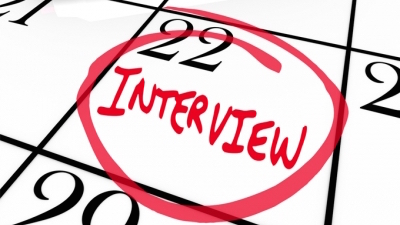NO SURPRISE…as a writer, I find it easier to interview others than to be interviewed myself. Maybe when I’m rich and famous it will become second nature, but for now, I much prefer asking the questions to answering them.
First-time fiction writers quickly discover how much they don’t know. You can’t write a paragraph without realizing this bare fact. If the question is “What kind of trees run along the sidewalk by the food courts at 10th and Alder in Portland, Oregon?” I can google it, but if I need to know how many fire trucks would respond to an explosion in that area and what would they do when they got there, unless I’m a fire fighter, I’m going to have to locate a firefighter from that area and interview them.
I suppose after a few more books I will have educated myself about basic police, fire, and medical examiner procedures, picked up a lot of knowledge about forensics and firearms, so I won’t need to interview as many people, but for now, I’m still emailing and talking with people on the phone…a LOT!
My tips to you, if you’re a new writer, is to do as much research online as you can, then try to locate experts who will talk with you. Police departments, fire stations, dispatchers, and medical personnel have all been very willing to talk with me, but sometimes it took two or three tries to find someone who had the time to talk and/or specific knowledge I needed.
TOP 5 TIPS
- Be prepared. Know what information you need for your story. I type up some ‘starter’ questions in a Word doc and type the answers in as the interview goes along. Sometimes I send the list of questions first, so they can be thinking about them before we talk.
- Don’t get sidetracked. When you do research, you may become fascinated by the sex life of seahorses, but don’t bore your readers to death with all the details – just use what you need to move your story forward.
- Treat the interview professionally. Make an appointment, respect their time and yours. Ask them if you can send follow up questions for clarification if necessary (they almost always say yes-everyone loves talking about what they do). Make sure you spell their name and title in the Acknowledgements and send them a complimentary copy of the book when it comes out.
- If they can’t help you with everything you need to know in that field, ask them for referrals to others who may be specialists. When I was interviewing a police dispatcher, she referred me to someone who was a firearms expert.
- Organize your notes and all emails. I have a gmail folder just for interviews so I can find what has been said so far without having to hunt for them or accidentally delete correspondence with an expert. In the Word doc for the actual interview, I put their name, title, contact information, the date of the interview, etc first – then the questions, and save them to a desktop folder I’ve created for that book.
I love this phase of writing – it often leads me to new story lines or solves a knotty plot problem I’m having.

 A self-admitted book addict, Valerie was the kid with the flashlight under her pillow. A life of travel with exposure to many different cultures led to a pervasive interest in people, with degrees & teaching credentials in Cultural Anthropology & English.
A self-admitted book addict, Valerie was the kid with the flashlight under her pillow. A life of travel with exposure to many different cultures led to a pervasive interest in people, with degrees & teaching credentials in Cultural Anthropology & English.